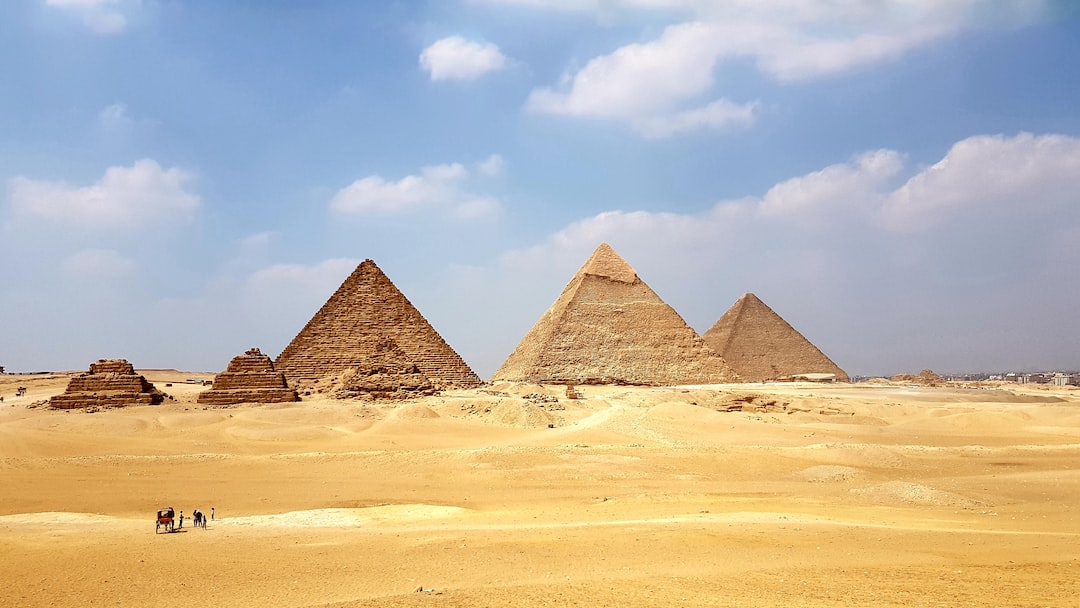Egyptian wedding traditions are as diverse and unique as the culture itself.
From engagement to post-wedding festivities, each of these rituals has its own set of customs that have been passed down through generations.
Whether you’re looking for ways to honor your heritage or want an exotic twist on traditional nuptials, exploring Egyptian wedding traditions can help make your special day even more memorable.
In this blog post, we’ll take a look at some of the most common engagement, ceremony, reception, and post-wedding traditions so you can plan a truly extraordinary celebration.
Egyptian Wedding Traditions
Engagement Traditions
Engagement traditions vary from culture to culture. In Egypt, engagement traditions involve a proposal ritual, the exchange of gifts between families, and celebrations to mark the occasion.
1. Proposal Rituals
In Egyptian proposal rituals, it is customary for a man to present his future wife with a gift before asking her parents for permission to marry her.
These gifts may be something simple like flowers or chocolates but often include more expensive items such as jewelry or money.
Once he has presented his intended with a gift, he will then visit her parents and formally ask them for their blessing on the union by offering them a token of appreciation such as money or food items like dates and nuts, which symbolize fertility and prosperity in Egyptian culture.
2. Exchange of Gifts
The exchange of gifts is also common during Egyptian engagements.
The groom’s family presents items such as gold jewelry or clothing to the bride’s family as a sign of their commitment and acceptance into each other’s lives.
These items are typically chosen carefully according to tradition and symbolize the love between two families coming together in marriage.
3. Celebrations
Engagement traditions in Egypt are steeped in culture and history. Proposal rituals involve the groom’s family visiting the bride’s family with gifts such as jewelry or money.
This is usually done to ask for permission from the bride’s parents to marry their daughter.
The exchange of gifts between families is also common, with the groom’s family presenting items such as gold jewelry or clothing to the bride’s family.
Celebrations are held after an announced engagement and can include feasts, music, dancing, and other festivities.
Engagement traditions are a significant part of Egyptian weddings. As the wedding approaches, it is important to understand these customs to ensure that all aspects of the ceremony are properly observed.
4. Wedding Traditions
Egyptian wedding ceremonies are full of traditions and customs that have been passed down through generations.
Pre-wedding rituals such as henna parties and bridal showers are often held in the days leading up to the wedding day.
At a henna party, guests apply intricate designs made from henna paste onto each other’s hands for good luck.
Bridal showers involve female relatives giving gifts to the bride as a sign of love and support.
Blessing ceremonies may also be performed for good luck before the big day arrives.
5. The Ceremony
On the actual wedding day, processional and recessional traditions are observed, with both families walking down the aisle together before taking their seats for the vows.
The couple then exchange rings during this part of the ceremony, symbolizing their commitment to one another forevermore.
Some couples may also choose to perform a unity ceremony, such as lighting a candle or pouring sand into a jar together; these symbolic gestures represent two lives becoming one in marriage.
The wedding ceremony is the heart of a traditional Egyptian wedding, full of ancient rituals and customs that will help to create beautiful memories for years to come.
Reception Traditions
Reception Traditions in Egypt are an important part of the wedding day.
6. Food and drinks
What is served at receptions varies by region, but typically includes traditional dishes like koshari (rice with lentils), molokhia (stewed greens), mahshi (stuffed vegetables) and ful medames (fava beans).
Desserts such as baklava or basbousa (semolina cake) are also popular.
7. Music and Dancing
Traditional choices often involve family members joining in on the fun. Traditional dances such as “baladi”, “saidi”, and “tabla baladi” are usually performed by guests while music is playing.
Couples may even perform a special dance together for their guests. Though music played during receptions can range from traditional folk songs to modern pop songs from Egypt or abroad.
8. Cake Cutting Ceremony
This is another important tradition that symbolizes fertility for newlyweds. After dinner, couples cut into a multi-tiered cake while holding hands to signify their union.
This custom has been around since ancient times and is still practiced today.
Other customs include exchanging gifts between families after the ceremony, blessing ceremonies for the couple, and honeymoon rituals that involve traveling to different places around Egypt or abroad.
No matter what traditions you choose to incorporate into your reception celebration, it is sure to be an unforgettable experience filled with love and joy.
From the traditional food and drinks served at the reception to music, dancing customs, and cake-cutting ceremonies, there is a rich array of Egyptian wedding reception traditions that couples can incorporate into their special day.
As the newlyweds prepare for life after marriage, they should also be aware of post-wedding rituals such as honeymoon customs, gift-giving to families, and blessing ceremonies.
Post-Wedding Traditions
9. Post-wedding traditions
Post-wedding traditions in Egypt are a unique and important part of the wedding celebration.
Honeymoon customs vary by region but often involve visits to holy sites like mosques or churches, followed by special activities like camel rides on beaches near Alexandria or Luxor.
This is an opportunity for newlyweds to spend time alone, away from family and friends, as they start their new life together.
Gift giving is also common after weddings, with both families exchanging presents such as jewelry or money as tokens of appreciation for attending their wedding day celebrations.
These gifts can be given at any point during the wedding festivities, from the engagement ceremony all the way through to the reception dinner.
Blessing ceremonies are usually performed by religious leaders or elders who offer prayers for health, wealth, happiness, and prosperity for newlyweds throughout their marriage life together.
In some cases, these blessings may take place before or after a meal shared between families, while in other cases, it may be done privately with just close family members present.
The blessing ceremony is an essential part of ensuring that newly married couples have a successful union and a happy future ahead of them.
These post-wedding traditions provide couples with meaningful ways to celebrate their love and commitment to each other while also providing support from family members and friends who will continue to play an important role in their lives even after they have tied the knot.
Conclusion
The beauty of Egyptian wedding traditions is that they are steeped in history and culture.
From the engagement to the reception, each step of a traditional Egyptian wedding is full of meaningful symbolism and celebration.
Whether you’re looking for something unique or simply want to honor your heritage, incorporating these customs into your special day can make it even more memorable.
No matter what type of ceremony you choose, embracing these Egyptian wedding traditions will ensure that your big day will be remembered.




